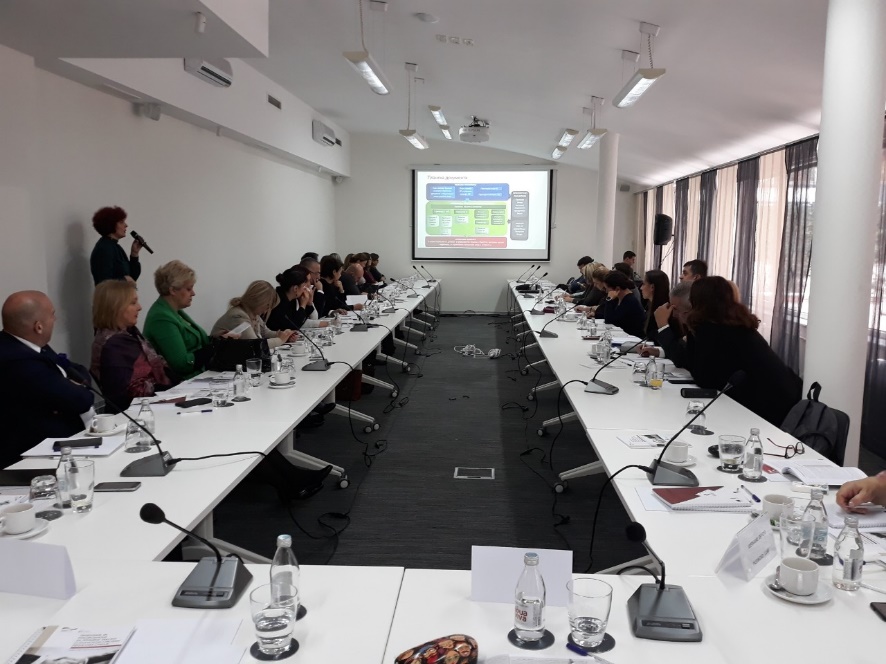
Special attention at the meeting was paid to the rules governing drafting strategic and multiannual planning documents – strategies, programmes, action plans, mid-term plans, and their content regarding the goals which the courts wish to achieve in their work. The experts from the Secretariat gave a presentation on how the monitoring, measuring and reporting on the performance and effects of using budget resources should be done, including those are allocated to the judiciary in Serbia.
With this in mind, the Project has identified the relationship between the workload, the scope of resources available for this work to be done, and the scope of budget to be the main course of programme budgeting in order to achieve results, which are all the elements of programme budgeting.
The Project has pointed to the fact that programme planning of an independent multiannual court budget (application of program budget methodology) has become a necessity in creating conditions for shortening court proceedings and increasing court efficiency, i.e. trials within reasonable time, a higher level of the quality of trials and trials in line with international standards.
Taking on this approach, the Project pointed to the necessity for a simultaneous and cause-and-consequence-driven planning of the scope and structure of court operations, necessary human resources and budget.


